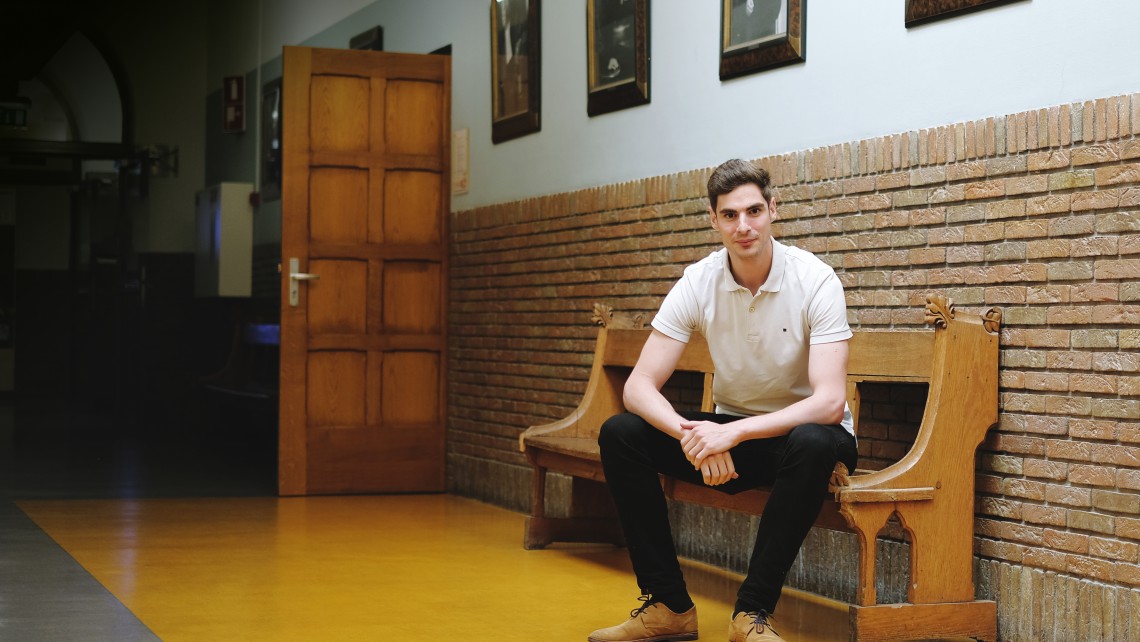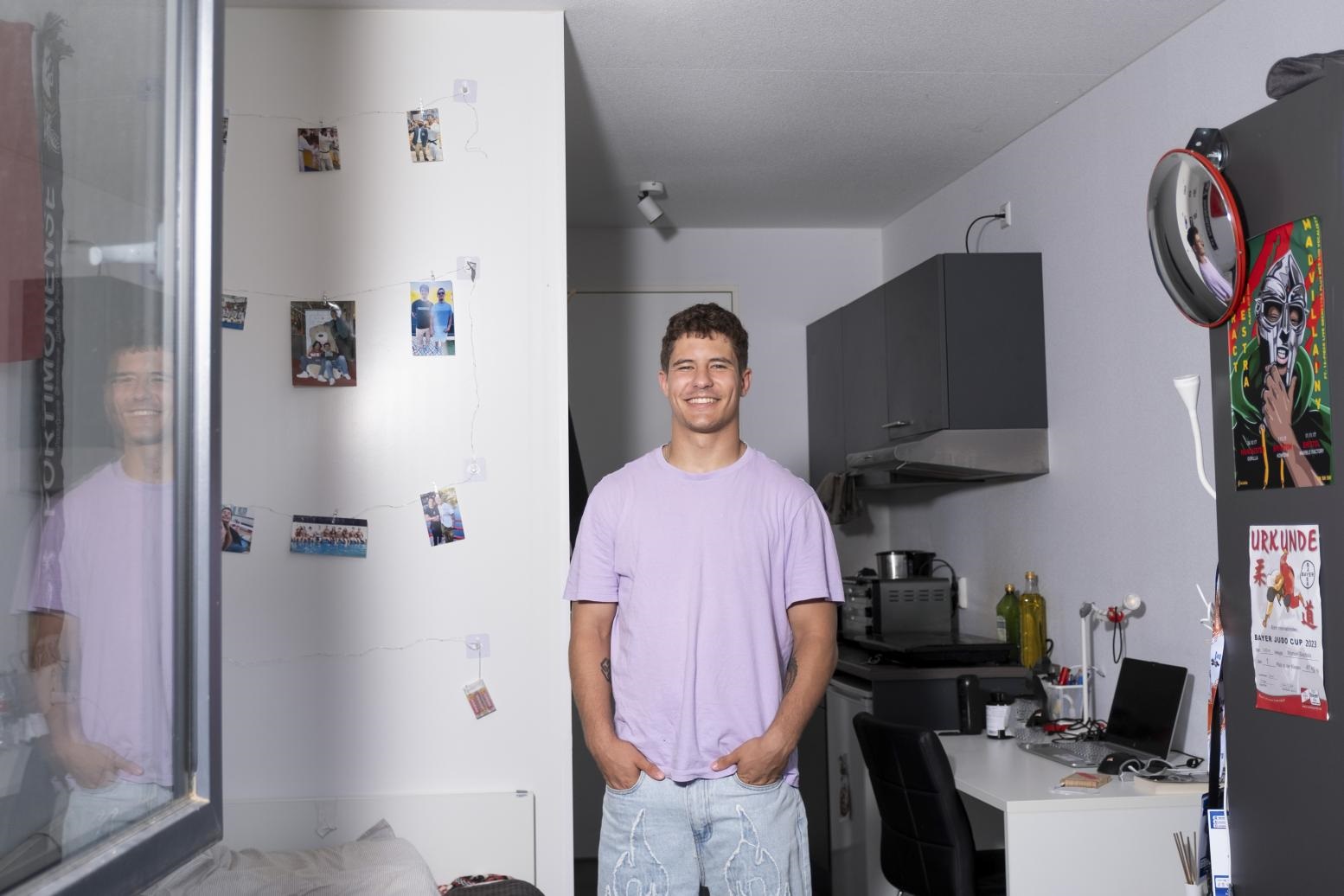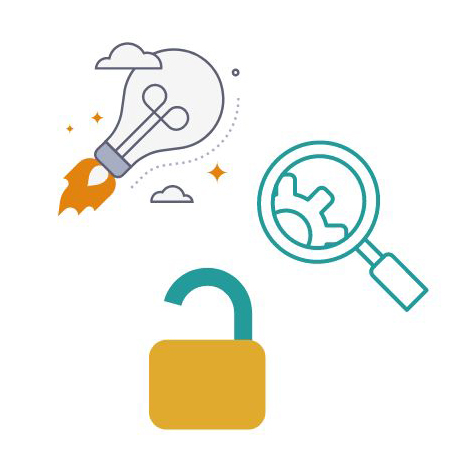Zijn kantoorgebouwen dodelijk?
Pleasure, art, science… and some thought-provoking information about the great indoors. Juan Palacios, a doctoral candidate in real estate, is one of three SBE academics speaking this year at Maastricht’s annual PAS Festival. His trenchantly titled lecture, How Your Office Is Killing You – and Your House, Too, promises to lift the lid on the impact of indoor pollution and ways to assess air quality.
Palacios, who is supervised by Piet Eichholtz and Nils Kok, is a fan of PAS’ aim of bringing cutting-edge research to a general audience. Being invited to participate was, he says, “a great (and welcome) surprise”.
“Normally, research might not reach people for years, and comes filtered by journalists. What I really like about PAS is that people can hear about the latest research directly from the people doing it,” he observes. “In an era of distrust of science, we have to convince people that science is worth investing in and listening to; otherwise our research has very short legs.”
It is not the first time he’s presented his work to a wider audience. “Early on, I had the opportunity to pitch my PhD in Washington to almost 300 industry people, chiefly architects and Environmental Protection Agency people. I had 10 minutes to convince them that what I was doing was worth following. I got a lot of training, I spent a lot of nights thinking about the storyline, and it paid off. My supervisor always told me to take every single opportunity I could to talk about my research.”
Evidence based
Palacios’ research, he says, is driven by the sense that there is still much to learn in his chosen field. “There is a lot of research about how buildings and real estate affect your savings and your finance, but little about how they affect your health and your performance at work. I was always fascinated about how little evidence there was, and how little I knew; it’s the reason I came here to Maastricht and SBE to work with worldwide real estate experts.”
We spend, he adds, 90% of our time indoors. “Buildings are becoming more, not less, important for us all. We need them as places to hide from the outdoors and weather, but we simply don’t know much about how well protected we are there. Look at mould, or carbon dioxide: it’s been proven in lab experiments at Harvard that such factors affect how you work, and we don’t know enough about how all these pile up.”
What can economists tell us about it?
“The core of economics is to understand the factors and implications of lower and higher productivity. When policymakers draw up budgets, they have to decide, for example, whether to invest in a school facility rather than more training for teachers. There is a lot of evidence on teachers’ productivity but very little evidence on how buildings affect it. So economists have skin in the game.”
There is no stupid question
Palacios’ PAS talk, he says, will draw on two research projects that he is involved in.
“In the first, we began by assessing the conditions of over 25,000 dwellings, and now we are linking those findings to the health of their occupants. The second project looks at office buildings. We are working together with a Dutch municipality that moved 70% of its employees to a new building, while the remaining 30% stayed in the original workplace. We documented the changes in both cohorts, including their perception of their office environment, and in the prevalence of health symptoms that have been shown to be related to so-called sick building syndrome.”
Will his lecture make us fear every building we enter? Palacios laughs. “When we think of buildings with problems, immediately the picture that pops up is from developing countries, or things experienced by our great-great-grandfathers. But it is not that unusual to live and work in non-optimal buildings. I will not try to persuade you that every building has a problem, but I hope to make you think twice the next time you look around at your home and office to judge whether everything is ok or not.”
What is the secret, in his view, to a good public lecture? “Making people feel that there is no stupid question, and that I don’t know everything either. You need to start on the basis that the talk is for everybody, and that everybody is more than welcome to throw in a comment or question. And that applies to teaching students and to talking to other researchers, too, because we are all reluctant to ask questions, and scared that we’re the most stupid person in the room.”
“At the end of the day, anyone who gives a good presentation in an academic setting will give a good presentation in a non-academic setting,” he adds. “It comes out of making people feel that you need their help… and as researchers, we need help from everybody.”
The PAS Festival 2017 runs from 8 to 9 September in Maastricht.

Lees ook
-
Het terrein aan de Sorbonnelaan in de Maastrichtse wijk Randwyck oogde zo’n twee jaar geleden nog ietwat kaal en afgelegen. Dat had vooral te maken met de modulaire en tijdelijke uitstraling van de studentenwoningen die er in korte tijd zijn gerealiseerd. Inmiddels krijgt de plek steeds meer het...
-
Miljarden dollars aan buitenlandse hulp zouden effectiever besteed kunnen worden als de internationale armoedestatistieken niet zo onnauwkeurig waren. Aldus Dr. Michail Moatsos, onderzoeker bij de Maastricht University School of Business and Economics.


